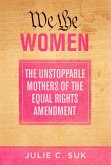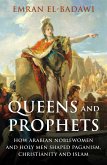A free ebook version of this title is available through Luminos, University of California Press's Open Access publishing program. Visit www.luminosoa.org to learn more. One of the most hotly debated issues in contemporary Muslim ethics is the status of women in Islamic law. Whereas Muslim conservatives argue that gender-differentiated legal rulings reflect complementary gender roles, Muslim feminists argue that Islamic law has subordinated women and is thus in need of reform. The shared assumption on both sides, however, is that gender fundamentally shapes an individual's legal status. Beyond the Binary explores an expansive cross section of topics in ninth- to twelfth-century Hanafi legal thought, ranging from sexual crimes to consent to marriage, to show that early Muslim jurists imagined a world built not on a binary distinction between male and female but on multiple intersecting hierarchies of gender, age, enslavement, lineage, class, and other social roles. Saadia Yacoob offers a restorative reading of Islamic law, arguing that its intersectional and relational understanding of legal personhood offers a productive space for Muslim feminists to move beyond critique and instead think with and through the Islamic legal tradition.
Dieser Download kann aus rechtlichen Gründen nur mit Rechnungsadresse in A, D ausgeliefert werden.









